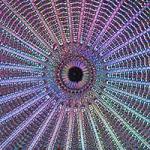
Alexander Chesler, Ph.D.
Senior Investigator
Sensory Cells and Circuits Section
NCCIH
Research Topics
The lab is interested in the neurons and circuits of the somatosensory system and the changes that they undergo during injury and inflammation. Currently, research in the lab is focused on discovering new molecules involved in the transduction of somatosensory stimuli and studying the regions of the brain that encode innocuous versus painful stimuli. Our work centers on a class of sensory neurons (called C fibers) that encode thermal, noxious, and mechanical stimuli. To investigate these questions, we are using a variety of methods in the lab to study transgenic mice that include physiology, two-photon imaging, optogenetics, and behavior.
Biography
Dr. Chesler received his degrees from Bard College (B.A., 1995) and Columbia University (Ph.D., 2005). His graduate study, in the laboratory of Dr. Stuart Firestein, was focused on the function and development of olfactory sensory neurons. He did his postdoctoral training in the laboratory of Dr. David Julius at the University of California, San Francisco, where he combined physiological, anatomical, and behavioral approaches to study the pharmacology of somatosensory neurons. He joined the NIH intramural pain program (NCCIH) in 2013 where his laboratory now employs multidisciplinary approaches to study how sensory stimuli (such temperature, touch, and environmental irritants) are detected and encoded by the somatosensory system.
Selected Publications
- Chesler AT, Szczot M, Bharucha-Goebel D, Čeko M, Donkervoort S, Laubacher C, Hayes LH, Alter K, Zampieri C, Stanley C, Innes AM, Mah JK, Grosmann CM, Bradley N, Nguyen D, Foley AR, Le Pichon CE, Bönnemann CG. The Role of PIEZO2 in Human Mechanosensation. N Engl J Med. 2016;375(14):1355-1364.
- Lam RM, von Buchholtz LJ, Falgairolle M, Osborne J, Frangos E, Servin-Vences MR, Nagel M, Nguyen MQ, Jayabalan M, Saade D, Patapoutian A, Bönnemann CG, Ryba NJP, Chesler AT. PIEZO2 and perineal mechanosensation are essential for sexual function. Science. 2023;381(6660):906-910.
- Ghitani N, von Buchholtz LJ, MacDonald DI, Falgairolle M, Nguyen MQ, Licholai JA, Ryba NJP, Chesler AT. A distributed coding logic for thermosensation and inflammatory pain. Nature. 2025;642(8069):1016-1023.
- Szczot M, Liljencrantz J, Ghitani N, Barik A, Lam R, Thompson JH, Bharucha-Goebel D, Saade D, Necaise A, Donkervoort S, Foley AR, Gordon T, Case L, Bushnell MC, Bönnemann CG, Chesler AT. PIEZO2 mediates injury-induced tactile pain in mice and humans. Sci Transl Med. 2018;10(462).
- Barik A, Thompson JH, Seltzer M, Ghitani N, Chesler AT. A Brainstem-Spinal Circuit Controlling Nocifensive Behavior. Neuron. 2018;100(6):1491-1503.e3.
Related Scientific Focus Areas


Biomedical Engineering and Biophysics
View additional Principal Investigators in Biomedical Engineering and Biophysics

Molecular Biology and Biochemistry
View additional Principal Investigators in Molecular Biology and Biochemistry
This page was last updated on Tuesday, July 29, 2025